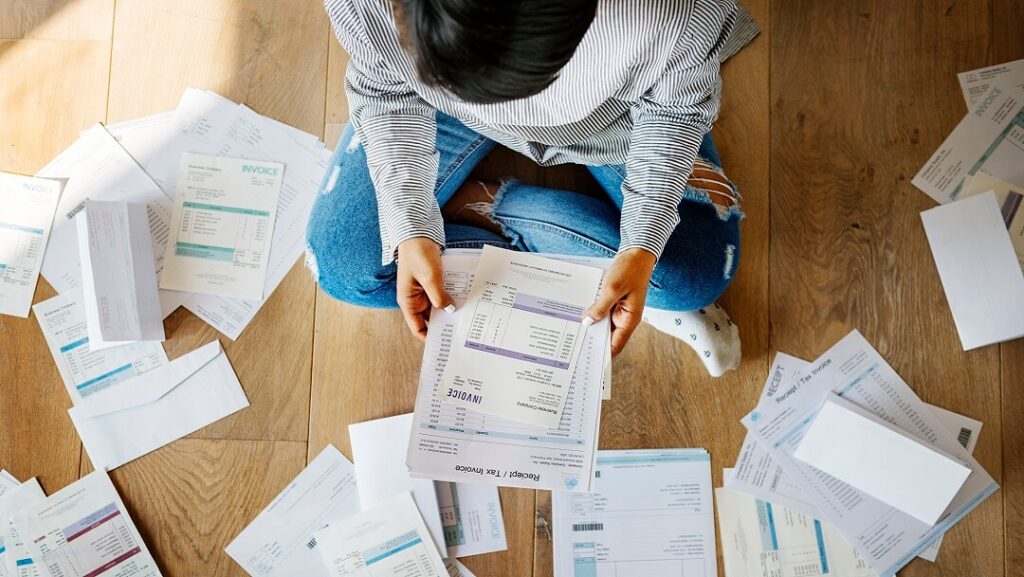When it comes time to purchase a home, finding a lender that gives you the best options is important. Having good credit simplifies the process and allows you to buy a home with a good interest rate, leading to less cost in the long term. However, having bad credit is not necessarily a hindrance to having your own home. You can own the home you’ve always dreamed of!
Explaining the credit scores
Lenders use credit scores to determine how trustworthy a borrower is or how likely they are to pay back the money loaned to them. The higher a credit score is, the more likely they are to loan money to the borrower.
FICO scores range from a low of 300 to a high of 800. How your credit score is determined is based upon a number of factors, including how reliable your payment history is, how many credit accounts you have opened, how old the credit accounts are, and how much debt you have.
Credit Score Chart
Very poor: 300-579
Fair: 580-669
Good: 670-739
Very good: 740-799
Excellent: 800-850
If your credit score is low, it may be beneficial for you to monitor your credit with a credit monitoring service, giving you tips and advice for improving your credit. If your credit is really low and you are struggling to improve it on your own, enlisting the help of a credit repair company can help. Taking steps to improve your credit before purchasing a home will ensure you get a better interest rate, which affects the amount of money you will pay over the life of the loan.

Bad credit mortgage loans with ‘guaranteed approval’
Many times, someone with bad credit is desperate to find a solution to purchasing their own home and they stumble upon mortgage loans that guarantee approval. This is a red flag because, under federal rules, a lender must verify the ability of a borrower to repay their mortgage. There is no guaranteed mortgage loan, whether you have good credit or bad credit.
While there is no guarantee, there are programs that offer bad credit home loans. It is possible to obtain a home loan with bad credit—so, if you’ve been looking around with no luck, don’t give up yet. There are several companies and loan programs available to people with less-than-stellar credit.
Lending Tree
Lending Tree is not a traditional lender. Rather, they are a service that helps people with bad credit find a lender by submitting the borrower’s information to a variety of lenders.
Pros
- Lending Tree boasts a simple four-step process.
- They eliminate the need to look at each lender’s requirements, allowing the borrower to simply compare and contrast their options.
- There is no fee to use their service.
- Potentially better rates because the lenders compete with one another to offer better rates to the borrower.
Cons
- They submit offers to all their lending partners, which leads to the potential of unwanted offers and spam.
- Rates go as high as 29% APR, which leads to a much higher cost for the borrower for the life of the loan.
PNC Bank Mortgage
Pros
- PNC considers non-traditional credit history, such as rental payment history to approve a loan.
- Their website has updated mortgage rates so that a customer is never blindsided by current rates.
- They offer a variety of loan programs including VA and FHA loans.
Cons
- Their application is not available entirely online, meaning it must be completed in person.
- In-person service is unavailable in some states, which means that PNC will not work for everyone.
Wells Fargo Mortgage
Pros
- Wells Fargo has their updated rates posted on their website. They are updated daily.
- They offer a variety of loan programs including FHA, USDA, and VHA loans.
- Their website boasts many educational products including videos and articles that will help you obtain a mortgage and understand the process.
Cons
- Their trust has been eroded because of government scandals.
- New applications for home equity lines of credit have been suspended because of COVID-19.
New American Funding
Pros
- They offer a variety of loan programs.
- You can install their app on your mobile device for convenient mortgage management.
- Their website offers calculators and a variety of other mortgage educational resources.
- Their mortgages are bilingual, making it easier for a native Spanish speaker to purchase a home.
Cons
New American Funding programs are not available in some states, such as Hawaii and New York.
Navy Federal Credit Union Mortgage
Pros
- Navy Federal Credit Union offers loans with no down payment, making it easier for first-time homebuyers to purchase a home.
- They offer a variety of loan services include VA loans.
- They offer an online application for pre-approval making applying for a mortgage simple and easy.
Cons
- The website does not offer customized rates based on your credit score before you apply.
- Their mortgages are meant for military members or their families only.
CITI Mortgage
Pros
- CITI Mortgage offers customizable loan rates on their website based on credit and other factors.
- They offer low down-payment mortgages, which is beneficial for first-time homeowners.
- Their fees and rates are lower than many other lenders.
Cons
- They charge a fee for applying for a mortgage through them.
- They require you to complete the mortgage application with a loan officer, meaning the loans cannot be applied for online only.
FHA Rate Guide
Pros
- FHA loans are easier to apply for because they have less stringent requirements than a VA loan or USDA loan.
- They offer low-credit score FHA loans which allow people with bad credit or low credit to apply for a mortgage with a low down payment.
- Homebuyers can apply for an FHA loan with a credit score as low as 500
- Most banks offer FHA loans.
Cons
Buyers with poor credit scores are still subject to higher interest rates.



Government-backed agencies
Government-backed loans are less risky than subprime loans and they boast lower interest rates and lower down payments. These loans are better for someone who has bad credit and is looking to become a homeowner because the requirements are less stringent than a conventional home loan.
VA Loans
VA loans are reserved for active-duty military members and veterans. These types of loans are guaranteed by the Department of Veteran Affairs. VA loans typically have a lower interest rate and can even be acquired with a 0% down-payment in some cases. These loans are especially beneficial for people with a credit score of 620 or higher, but they can be acquired with a credit score of 580 or above in some cases.
USDA Loans
A USDA loan is a loan that is typically offered to lower-income home buyers that are looking to purchase a home in a rural area. These loans boast a 0% down payment. The credit requirements for a USDA loan are a little bit higher, generally requiring a score of 640. However, there are exceptions, so if you are interested in a home in a rural area, a USDA loan might be a good fit.
FHA Loans
An FHA loan is a government-backed loan through the Federal Housing Authority. The loan is meant for borrowers that have low credit, usually around 580 or above. As long as the borrower can provide a 3.5% down payment on the house, they’ll likely qualify for an FHA loan. The requirements for an FHA loan are less stringent than those for a VA or USDA loan making them a good choice for low-credit borrowers.
It is absolutely possible to find the right house for you, even if you have low or bad credit. There are a variety of tools available for you to increase your credit score. If your credit score is still lower than a conventional loan requires, you can search for a loan that is less risky and government-backed. Another option is to improve your credit score so you can enjoy the benefits of a lower interest rate and better terms for your home mortgage.
If you’re ready to start the home buying journey, reach out to the experts at Hero Home Programs. They will utilize their expertise to find grants and rebates for home buyers, as well as set you up with service vendors at reduced rates. Contact us today and we could help you save thousands of dollars on your home purchase.
Original post here: Is “Bad Credit Mortgage Loans Guaranteed Approval” Safe?



